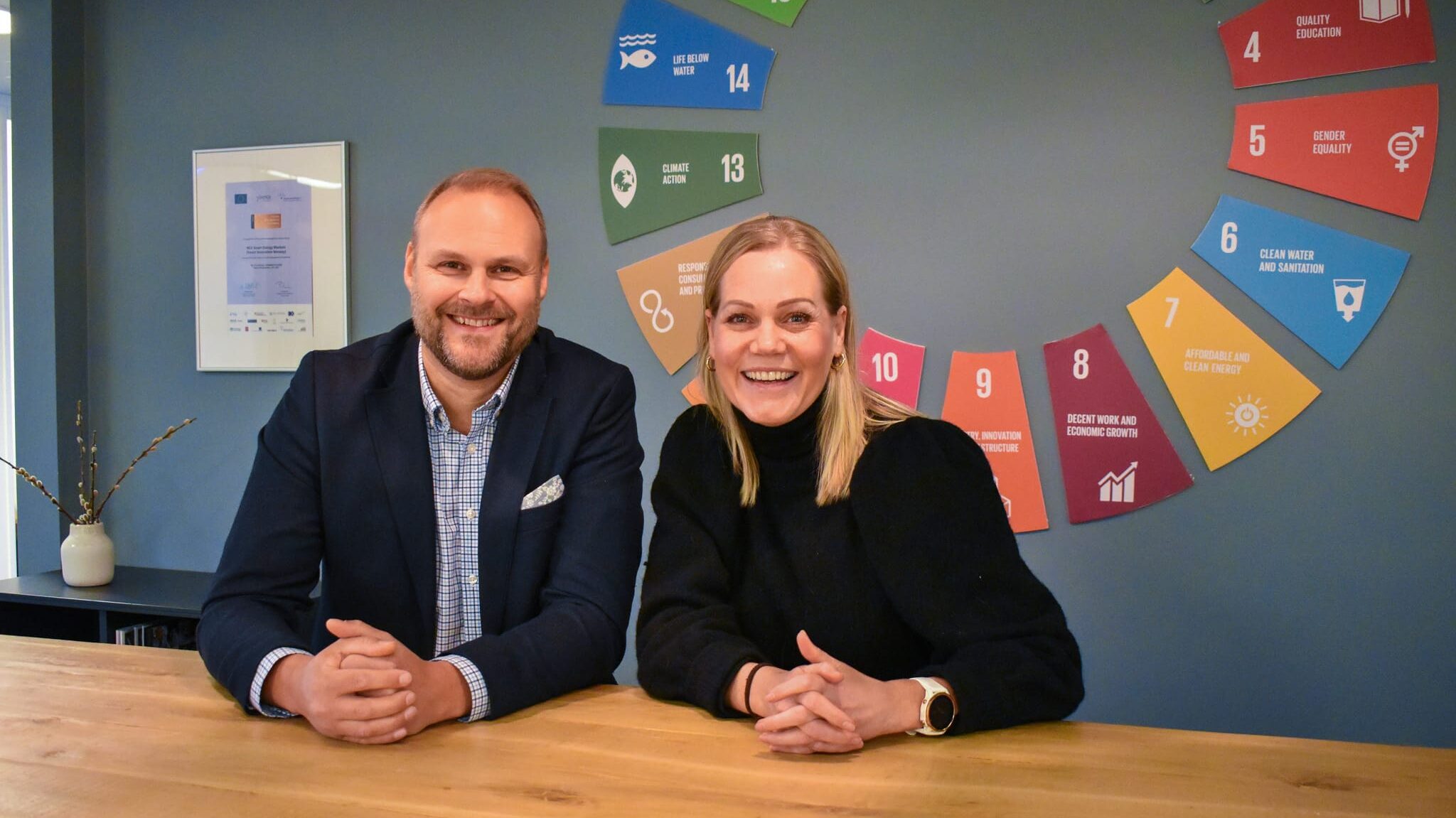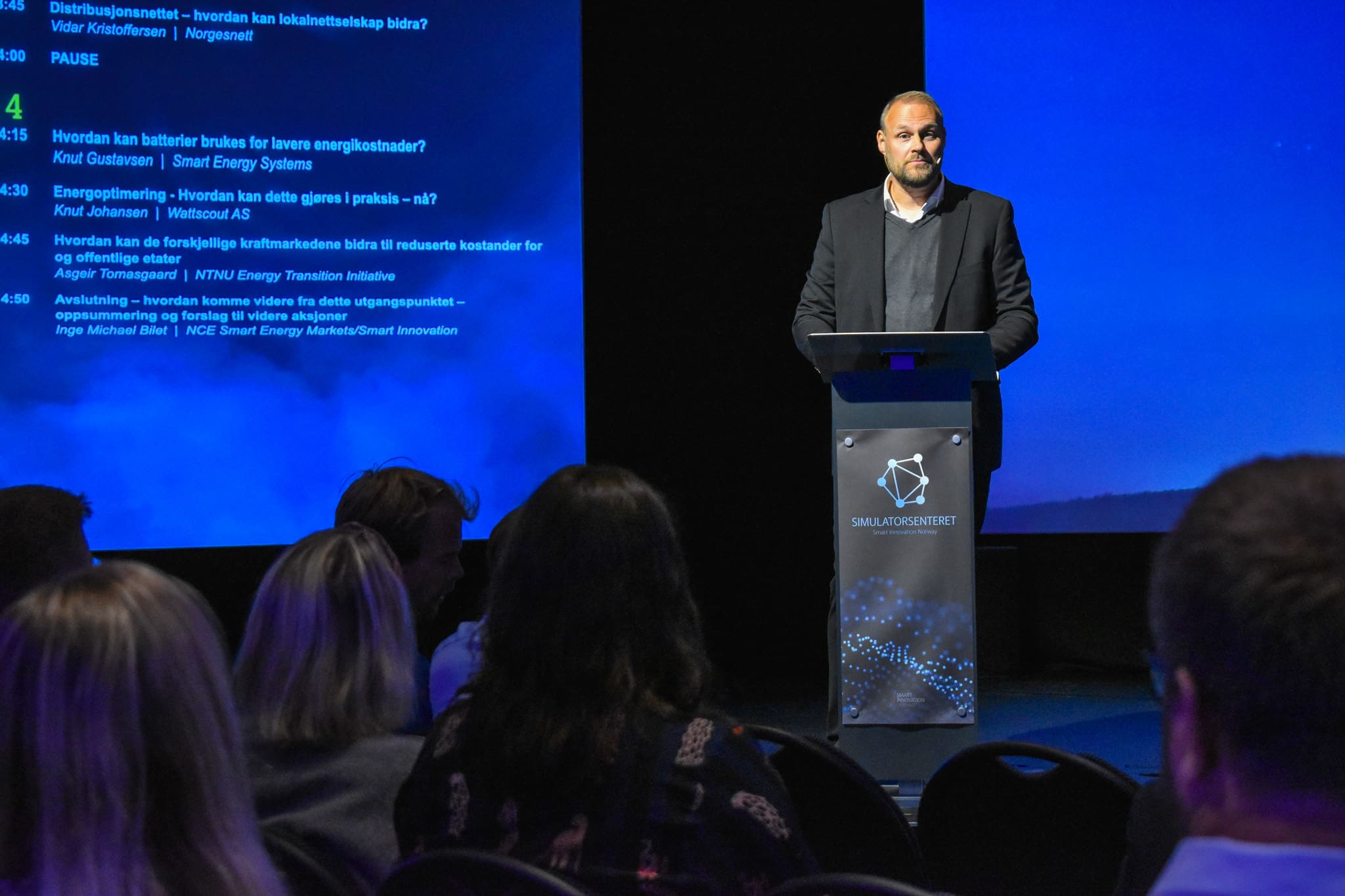The climate crisis, and the global imperative to address it, represents a significant business opportunity in areas where Norway possesses substantial expertise, specifically in climate-friendly energy technologies.
Gjennom rapporten «Fornybarnæringen eksporterer: En satsing for økt eksport mot 2030» ønsker næringsklyngen NCE Smart Energy Markets sammen med flere andre å fortelle myndighetene at fornybarbransjen representerer et stort eksportpotensial. I sum er det snakk om 200 milliarder kroner.
"We're not talking about exporting renewable energy, i.e., electricity, per se. It pertains to knowledge and technology. The report presents Norway's export opportunities in renewable energy and highlights five competitive advantages," says Inge Bilet, Cluster Leader for NCE Smart Energy Markets.
The competitive advantages are defined as follows:
- Development, Operation, and Ownership
- Supplier Industry for Power Production (offshore wind, solar power)
- Hydrogen
- Smart Solutions in the Power System
- Energy Infrastructure for Vessels and Vehicles
Smart solutions
NCE Smart Energy Markets was invited to contribute to the report because the cluster represents a central hub for competence and innovation. Along with ElBits, Norwep, Aneo, NHO, Å Energi, Heimdall Power, Energi21, Abelia, Statkraft, and Eviny—with Fornybar Norge at the forefront—the cluster has articulated the industry's key priorities, export prospects, and where the expertise lies.
Bilet reveals that it is competitive advantage number 4 (smart solutions in the power system) that NCE Smart Energy Markets has contributed to significantly.
"We have influenced the content of the report and highlighted some examples of companies within the cluster that are establishing positions abroad in this field," he notes.
The cluster leader mentions Heimdall Power, Wattscout Solutions, eSmart Systems, and Smart Energy Systems, all of which develop smart solutions in the power system. The aim is to demonstrate that Norway has built crucial expertise that enables Norwegian companies to gain ground internationally.
Leading the way
"The report also highlights that we have certain prerequisites to excel in this area. Firstly, we have a weather-dependent power system through hydropower. We have had experience with this for many years, much longer than many other countries. Therefore, we have developed leading expertise. We are at the forefront of digitizing the power system," emphasizes Bilet.
Smart solutions can encompass technology, sensors, software, or hardware—but the expertise itself can also be exported.
"Essentially, we have a lot of available data from the power system. We have a wealth of knowledge and experience that can be exported to Europe and the world," he explains.
Bilet makes it clear that there is still much work to be done, including addressing the issue of many small grid companies that do not cooperate with each other.
"They do not exchange information and operate in silos. The industry is now addressing this by establishing a company that will bring grid companies together to standardize and develop solutions collectively."
Clusters connect public and private actors
The report mentions cluster activities as a crucial factor for success. Under the section "Success Criteria," there is a clear recommendation that competence environments in the power market must collaborate more closely. This can be achieved through the continuation of the cluster program and business clusters that facilitate the sharing of expertise.

"We need to break down the silos so that we can encourage private companies to grow and collaborate with municipally-owned companies. Municipal grid companies primarily focus on their region, not on becoming export giants. Therefore, grid companies should serve as a "testbed" for Norwegian technology providers. If publicly-owned companies are more open, conduct pilot projects, and collaborate with private Norwegian companies, they can together develop solutions that can be exported," says Bilet. He adds:
"Clusters connect companies and set up such pilot projects and collaborative initiatives between business entities. This is something we wanted to include in the report."
Seeking government support
The goal is for the report to influence government policies and focus on what constitutes excellent export opportunities or export-oriented industries.
"We believe it's crucial for the government to direct its resources towards this sector, so that the renewable industry can continue to evolve and become an even more substantial export sector," says Bilet.
He hopes that increased investment in renewable energy exports will benefit cluster partners by providing public funding for projects, pilots, innovation, and development.
"Ultimately, it's about contributing to solving the energy crisis. That's essential," concludes Inge Bilet.

